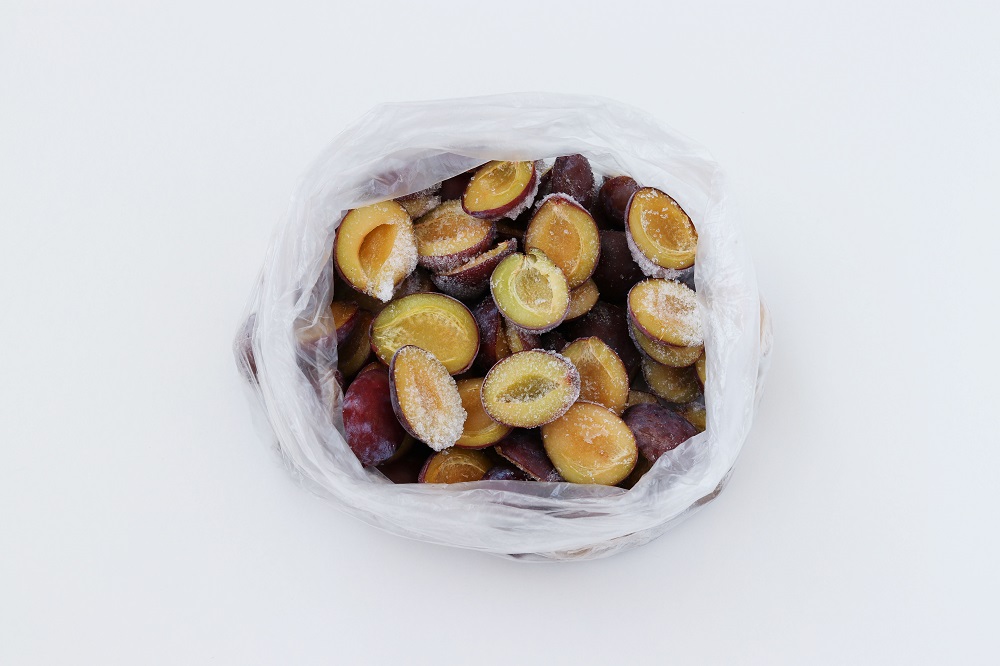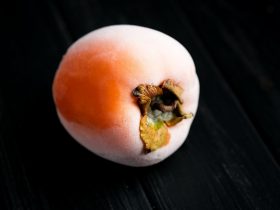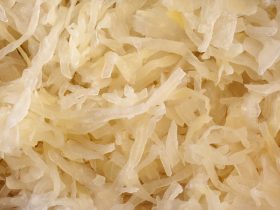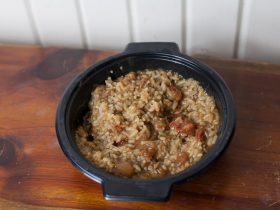The name plum refers to a soft fleshed and skin covered fruit primarily found in hues of red and purple. Originating from nearly every major continent on the planet, plums are known for having a distinctly sweet taste and a juicy texture.
Like most organic fruits and vegetables, plums can expire quite quickly when left exposed to the elements, with this fact being all the truer due to the high-water content and thin skin of the fruit. As such, it is often a good idea to preserve any plums that you have purchased if they will not be immediately consumed.
Plums can freeze rather well if stored in the proper manner and treated so as to resist the damaging effects of freezing. Just like freezing other juicy fruits, plums may experience some loss in their textural quality and physical integrity, though their particular makeup allows them to retain their shape and a large portion of this quality, unlike other fruits.
Can Plums be Frozen Without Cooking?
While cooking or otherwise blanching your plums prior to placing them in the freezer is the surest way to keep them from growing soggy and deformed as ice crystals expand inside them, it is not entirely necessary.
It is entirely possible to skip the whole blanching process and to simply wash, dry and subsequently package the plums, potentially saving energy and time at the expense of the plum’s physical integrity.

While we do not recommend doing this owing to the physical degradation the fruit will experience, it may prove a valuable strategy for individuals with a limited amount of time at their disposal.
In the end, the decision to blanch your plums before freezing them is entirely an individual choice, especially in the event that you are only preserving the plums in order to use them for dishes such as pies or spreads in the future, as the textural degradation therein will have little effect on these particular uses.
Can Plums be Frozen with Their Pits?
In the event that you do not desire to core or slice the plums and to then remove the pits, freezing them whole is entirely possible, though not without its own sort of drawbacks that may prove inconvenient in the future.
The largest of these drawbacks is that the plums will be difficult to store in large numbers owing to their size and circular nature, with halved or sliced plums being a much more convenient shape for storing, especially in small freezers wherein space is limited and must be rationed appropriately.
Another factor to consider while doing so is the length of time at which the plums will need to thaw after being removed from the freezer, as the presence of a hard object in the center of the fruit surrounded by similarly cold fruit flesh will take a far longer time to warm up than the flesh on its own.
It is our recommendation that any home chefs or similar individuals remove the stones from the center of the plum so as to facilitate storage and defrosting as much as possible.
How Long Do Plums Last After Picking?
The length of time at which plums may remain in their best quality after being picked from the tree depends on a variety of factors, such as the storage environment in which they are kept, their physical state and their current level of ripeness.
Ordinarily, fully ripe plums will only last for up to three days before their particular edibility must be called into question.
This relatively short length of time can be even further shortened by the usage of improper storage methods or in the event that the fruit has been damaged or otherwise had its skin compromised.
Ideally, plums should be stored in a breathable but still insulating container far from other types of fruit that may release the hydrocarbon compound ethylene as they ripen, accelerating the enzymatic decomposition of the plums.
Apart from these two factors, plums must also be kept in a dark and cool area, as light and heat will act as catalytic agents for the development of microbiological life as well as accelerate the loss of quality the plums will experience as they are left exposed to the elements.
Can You Freeze Unripe Plums?
Freezing plums before they have reached their own particular point of ripeness is an inadvisable decision as the process of freezing will interrupt the chemical developments involved in the fruit’s ripening stage.
This is due to the fact that low temperatures slow down the movement of molecules and atoms, acting as an inhibitor to chemical reactions and even entirely stopping it in certain cases.
However, where plums are concerned, this ripening process will quickly resume once they have been removed from the freezing temperatures and allowed to warm up somewhat.
An excellent strategy to preserve plums before they are ripe is to instead wait until they have nearly reached their best quality and to then immediately arrest the ripening process by placing the fruit in the freezer, guaranteeing the fruit will be at its ideal ripeness when you choose to consume it.
Keep in mind that freezing fruit high in water content, even plums, will still cause a noticeable decrease in their quality, however.
How Long Do Plums Last in the Refrigerator
While the lower temperatures of a refrigerator will indeed decrease the speed at which the plums spoil both from their own internal enzymatic spoilage as well as from the colonization of microbial life, the difference is relatively negligible at best.
Stored using the proper preservation methods, plums will last for up to five days before spoiling, as opposed to the approximate length of three days at room temperature conditions.
To store plums in the refrigerator, simply wash them by running the fruit beneath a cold tap and gently scrubbing their skins with your fingertips. Pat the surface of the plums dry with a cloth towel, taking care not to bruise or cut them in any way.
Place the plums in an air-tight container or plastic bowl wrapped in cling film. Ensure that the bowl is dry and free of dirt before placing it in the driest section of the refrigerator, as far as possible from the crisper drawer wherein it may develop condensation.
It is important to keep in mind that sliced or otherwise damaged will not last as long as the estimated five days owing to the fact that bacteria and fungi will be able to reproduce faster without the insulating layer of skin covering the plum’s flesh, even as thin as it is.
What Do You Need to Freeze Plums?
Freezing plums is somewhat more time and labor intensive than simply throwing them into the freezer, and as such will also require several pieces of kitchen equipment that are best prepared prior to beginning the freezing process.
These kitchen implements are a paring knife, a stove, a set of tongs, a sufficiently large pot, several resealable freezer bags, a bowl of ice water and a parchment or foil lined baking sheet.
Keep in mind that if you are choosing to skip the process of blanching the plums prior to freezing, you will not need the bowl of ice water, stove, or pot, as these implements are involved in the aforementioned blanching step.
How to Freeze Plums
To begin freezing your plums, first carefully peel them with the paring knife. This step is optional in the event that you would prefer to keep the peels intact, however it is likely that they will suffer from textural degradation and turn somewhat slimy once removed from the freezer.
Note that in the event you desire to retain the skins of the plums, it is best to wash them prior to blanching or packaging, as they may contain trace amounts of bacteria and fungi.
Slice the plums into whatever size and shape you deem appropriate, or even leave them whole. As you are doing so, heat the pot of water to a boil on the stovetop.
As the water approaches its boiling point, prepare the bowl of ice water in close proximity to the stove. Dip the plums beneath the surface of the boiling water using your pair of tongs, holding them submerged for approximately twenty seconds.
Once this period has elapsed, immediately remove the plums or plum pieces from the boiling pot and plunge them into the bowl of ice water. This will instantly halt the cooking process of the plum by dropping its internal temperature quickly, thereby completing the blanching process.
Lay the plum or plum pieces along the lined baking sheet, ensuring no two pieces or plums are touching so as to prevent them from freezing together. Move this baking sheet to the freezer uncovered for up to two hours or until the plums have developed an icy texture.
Once frozen, place your desired serving volume of plums or plum pieces into separate individual bags, pushing out as much air from within as possible. Pile these bags in the deepest part of your freezer, far from any sources of freezer burn such as fans or vents.
Plums stored in this manner will last for as long as six months without showing signs of spoilage.
References
1. Bruce L. Topp; Dougal M. Russell; Michael Neumüller; Marco A. Dalbó; Weisheng Liu (2012). Plum (Handbook of Plant Breeding). 8, part 3. pp. 571–621. doi:10.1007/978-1-4419-0763-9_15.
2. “Japanese Plum – Loquat”. University of Florida, Nassau County Extension, Horticulture. 2006.





Hi, I'm Dom
Dom Eats was started to help other people fall in love with food. While cooking can feel intimidating, it doesn't have to be.